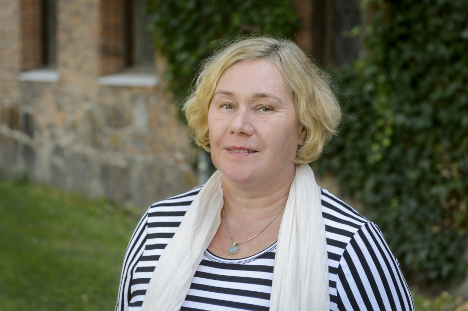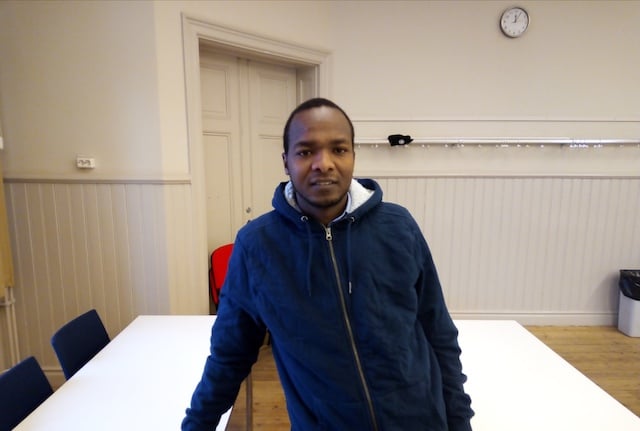What is your role at the university?
As Deputy Vice Chancellor, I’m the second in command at the university. I stand in for meetings and decisions when the Vice Chancellor can’t be present, but I also have my own responsibilities, including overseeing all education at all levels of the university, both undergraduate and graduate. That involves quality assurance and enhancements in teaching and learning.
I’m also in charge of the education board at Lund, which includes deans from all different departments as well as student representatives and decides on new masters programmes and other matter. And I also have responsibility for all international matters related to education and research. I’m on Lund’s board for internationalization which was launched last spring that looks at what international networks we should be a part of and what masters programmes are most suitable for international exchanges.
What are Lund University’s defining characteristics?
It’s the second-oldest university in Sweden and the most comprehensive – we have the widest offering of faculties and departments. We’re also very research intensive, and research permeates into our teaching in a very natural way.
We’re also the most international university in Sweden, with the most tuition-paying students. And out of 200 masters programmes we offer, 150 are in English. I think that really defines Lund – our international profile.
How does higher education in Sweden compare to other countries?
One thing that they do very well in the US and in other countries that we could be better at is having a couple of basic liberal arts years at the start of university. Things are a bit compressed here in Sweden, with students immediately starting programmes related to their eventual career directly out of high school. They don’t have a year or two of basics that help them better understand what’s involved with studying at university, and that can be quite helpful.
We’re aware of this and have for now used MOOCs (Massive Open Online Courses) to help younger students broaden their horizons.
How is the role of the university changing in today’s globalized, digital world?
Well, universities evolve all the time, and so has Lund. We’re not only old, but we’re also new. We just opened one of the most advanced synchrotron facilities in the world – the MAX IV – in June. And next to that construction continues on ESS (European Spallation Source) facilities.
There’s always a lot going on in education and we need to be able to adapt. It’s worth remembering that Lund was established in 1666 by Sweden’s King Charles XI to ‘Swedify’ the area after he captured it back from Denmark. We have the original faculties – law, theology, philosophy, and medicine – but also newer faculties like fine arts, as well as many online courses.
We also bring a lot of modern technology into our teaching and research and that keeps us at the cutting edge of creating new knowledge. We have close collaboration with Ericsson, the telecom company, and Gambro where the artificial kidney was developed. You know Bluetooth technology was also developed in Lund and we continue to have lots of innovation in mobile development here.
Why did you start your international blog?
We have a newsletter in English that covers most of what’s happening in terms of education, and the Vice Chancellor has a blog in Swedish, so that doesn’t really focus on international students. I thought it would be good to have something for our international students and researchers and PhD students – many of whom know English but not much Swedish.
I look at it as our window out to the world – a way to let the international community know what we’re doing, where we’ve travelled, who we’re meeting, etc. I want to inspire students and researchers and highlight our different collaborations and exchanges –like the SI scholarship students we have here at Lund.
It’s also a voice for management where we can communicate to the world. I should probably write something about Brexit – or maybe even the US election.
Why are international students important to Lund?
They are really an asset and great to have in the classroom – it allows everyone to learn a lot from one another. International students can inspire other to think differently and consider new perspectives. They also become ambassadors for the university after they leave.
I really feel the quality of our education is enhanced by all our international students. It allows us to be more of a global platform for learning.
How does Lund help international students get acclimated?
On arrival day we have volunteers who meet the students at the airport in Copenhagen and we arrange transport that brings them right to campus. The volunteers are older students who can help answer questions and show the new international students around to the student unions, the residence halls, and make sure they learn about all the extracurricular actives we offer.
What should international students not miss during their time at Lund?
If they are here for an entire academic year, they should not miss the Lundaspex, which is held on April 30th and May 1st every year. The city just explodes with activities, games, and shows. At the heart is a musical theatre ensemble made up of students and its great fun and something really special for Lund. And you might not be surprised to hear that there’s quite a lot of beer too.



 Please whitelist us to continue reading.
Please whitelist us to continue reading.